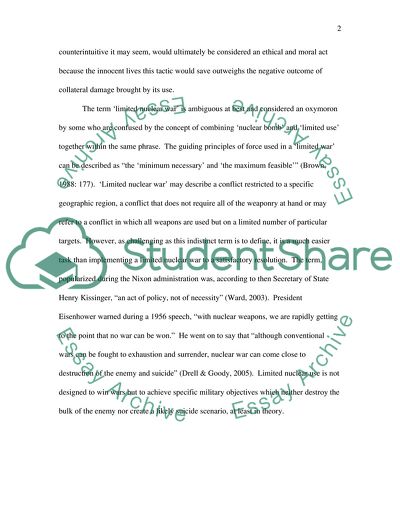Cite this document
(Can Limited Nuclear Warfare Be an Ethical and Humane Policy for a Article, n.d.)
Can Limited Nuclear Warfare Be an Ethical and Humane Policy for a Article. https://studentshare.org/military/1707826-can-limited-nuclear-warfare-be-an-ethical-and-humane-policy-for-a-government
Can Limited Nuclear Warfare Be an Ethical and Humane Policy for a Article. https://studentshare.org/military/1707826-can-limited-nuclear-warfare-be-an-ethical-and-humane-policy-for-a-government
(Can Limited Nuclear Warfare Be an Ethical and Humane Policy for a Article)
Can Limited Nuclear Warfare Be an Ethical and Humane Policy for a Article. https://studentshare.org/military/1707826-can-limited-nuclear-warfare-be-an-ethical-and-humane-policy-for-a-government.
Can Limited Nuclear Warfare Be an Ethical and Humane Policy for a Article. https://studentshare.org/military/1707826-can-limited-nuclear-warfare-be-an-ethical-and-humane-policy-for-a-government.
“Can Limited Nuclear Warfare Be an Ethical and Humane Policy for a Article”. https://studentshare.org/military/1707826-can-limited-nuclear-warfare-be-an-ethical-and-humane-policy-for-a-government.


